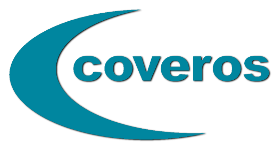Owen Gotimer
Hello everyone. My name is Owen Gotimer. I’m the community manager at TechWell. I’m joined today by Tom Stiehm the CTO at Coveros. Tom, thanks for joining me today.
Tom Stiehm
Thanks for having me.
Owen Gotimer
Tom, we’re going to chat about some DevOps and DevSecOps anti-patterns, and the first one I was hoping we could tackle was never changing the incentive program. Do you want to give a basic explanation as to what that anti-pattern means?
Tom Stiehm
So what we see when we do transformations is that organizations often have an incentive system in place before you start the transformation, and that incentive system is what drives a lot of behavior. So your culture and the way your organization works and the way people do their work within your organization is driven by the incentive system. So if you want to change and leverage agile or DevOps, but you never change the incentives system, the culture will pull people back to the old ways of working and trying to solve problems the way that they always have before because those were successful in the culture based on the incentive system. One of the things that people see is that people will do things like pair programming and work together, and try to solve problems and own all of the work until it comes really close to annual review time, and then everyone stops working with everyone else and focuses on their objectives. So you get this dichotomy of we’re trying to get people to work together and get the total amount of work through the system and to done faster, but then when they feel they’re going to be measured, they decide it’s better for me to get the things that were individually assigned to me done rather than what’s best for the entire project or product.
Owen Gotimer
There’s obviously a huge detriment to the team, especially if they’re following that kind of cadence, where at the end of the year in the annual review period, they start to fall off and worry more about their objectives. So what are some steps you can take to make those changes to your incentive programs?
Tom Stiehm
Well, a lot of organizations need to look at how do they reward. So an incentive program is how you reward and how you punish people. Those rewards and punishments are the things that dictate how people work. So people are self interested. They want to maximize their rewards and minimize their punishments. So if your culture is one that when a problem happens, you first have to fix the blame, then that will lead to a culture where people won’t share information. They’ll hide any mistake that’s made, deny any mistake that’s made. If you change that around and you have a culture where you allow for some mistakes, your goal is to control the amount of damage any mistake does but allow for mistakes, and you don’t punish people for making mistakes that the group has decided they’re going to try to do, and as long as people learn from that, then people are more open. They’ll talk about the problems, the things that they did that led to that point better. So that’s one thing is how do you react when mistakes happen? We talked earlier about if it’s an individual rewards versus team rewards and some kind of some kind of blend of the two, where you’re identifying individuals who are doing outstanding work, but it’s never divorced from the team they’re on, and is the team they’re working on doing good work as well? There’s a sports analogy, where if you have a team of all allstars, they don’t perform as well, because everyone’s trying to maximize their performance. So you want to do something that encourages teamwork and encourages people to help each other. One way to do that is to have some of your incentive system be based on things that the team does, rather than just things that the individuals do.



